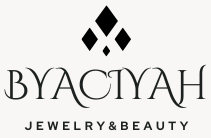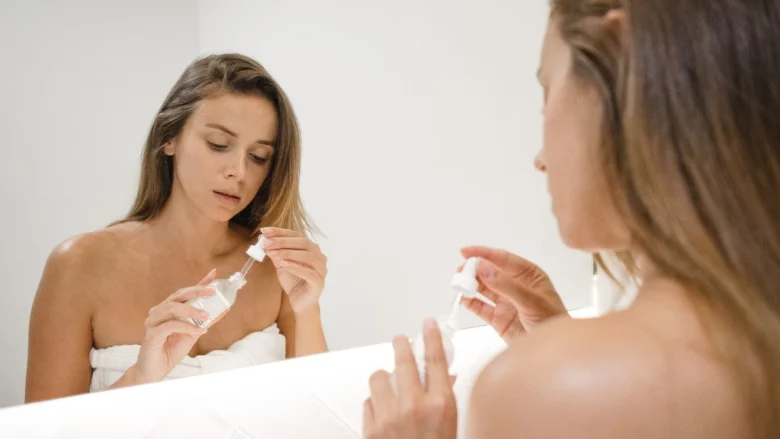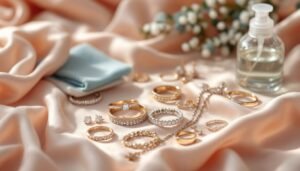In today’s world, skincare and beauty go far beyond just looking good—they’re about feeling confident, practicing self-care, and protecting your skin’s health for the long term. With so many products, trends, and advice out there, it’s easy to feel overwhelmed and not know where to begin. Should you invest in expensive serums, or will natural remedies be enough? Do you really need a 10-step routine, or can a few simple steps make a difference?
The truth is, skincare and beauty are deeply personal. What works for one person might not work for another, but there are proven principles that help almost everyone achieve healthier, radiant skin. This guide will walk you through practical tips, routines, and insights to help you make smart choices for your skin while avoiding common mistakes.
Why Skincare Matters More Than Ever
Your skin is the body’s largest organ, and it plays a vital role in protecting you from environmental damage, regulating body temperature, and even reflecting your overall health. Neglecting skincare can lead to issues like premature aging, dryness, acne, or long-term sun damage. On the flip side, taking care of your skin boosts confidence, improves comfort, and helps you look refreshed and youthful.
Beauty trends come and go, but healthy skin never goes out of style. Building a routine is less about following fads and more about protecting and nourishing your skin consistently.
Building a Simple but Effective Skincare Routine
The best skincare routine doesn’t have to be complicated. In fact, dermatologists often recommend starting with three core steps: cleansing, moisturizing, and sun protection. From there, you can add products depending on your needs.
1. Cleansing
A gentle cleanser removes dirt, oil, and makeup without stripping the skin’s natural barrier. Avoid harsh soaps that leave your skin feeling tight, as this often leads to irritation and overproduction of oil.
2. Moisturizing
No matter your skin type—dry, oily, or combination—moisturizer is essential. Hydrated skin looks plump, heals faster, and creates a smooth base for makeup. If you have oily skin, opt for lightweight, non-comedogenic options.
3. Sun Protection
Sunscreen is the most important skincare product you’ll ever use. UV rays cause up to 90% of premature aging, including fine lines, wrinkles, and dark spots. Daily use of broad-spectrum SPF 30+ can dramatically reduce these effects.
Choosing the Right Products for Your Skin Type
Understanding your skin type is key to avoiding unnecessary irritation or breakouts.
- Dry skin: Look for rich creams with hyaluronic acid, ceramides, or shea butter.
- Oily skin: Lightweight gel moisturizers and foaming cleansers help balance excess oil.
- Combination skin: A gentle, hydrating cleanser and lightweight moisturizer keep skin balanced.
- Sensitive skin: Fragrance-free, soothing formulas with ingredients like aloe vera and chamomile work best.
Instead of chasing every new product, focus on building a small, reliable lineup that addresses your unique needs.
Common Skincare Mistakes to Avoid
Even with the best intentions, many people unknowingly damage their skin. Some mistakes include:
- Over-exfoliating: Scrubbing too often can weaken your skin barrier, leading to redness and breakouts.
- Skipping sunscreen on cloudy days: UV rays penetrate through clouds and even windows.
- Trying too many new products at once: Introducing multiple new items makes it hard to know what’s working (or causing irritation).
- Not removing makeup before bed: This clogs pores and accelerates aging.
By avoiding these pitfalls, you allow your skin to repair and thrive naturally.
The Connection Between Diet, Lifestyle, and Skin Health
Skincare isn’t just about what you put on your face—it’s also about what goes into your body. Hydration, balanced nutrition, and quality sleep directly impact your skin’s health.
- Water: Staying hydrated helps maintain elasticity and reduces dullness.
- Antioxidant-rich foods: Fruits, vegetables, and green tea fight free radicals that age skin.
- Sleep: During rest, the skin repairs itself, making a full night’s sleep essential.
- Stress management: Chronic stress can trigger acne, eczema, and other skin issues.
A holistic approach that combines external care with internal health will always deliver the best results.
The Role of Beauty in Self-Care and Confidence
Beauty isn’t about perfection—it’s about embracing what makes you unique. Makeup and skincare can be empowering tools to boost self-esteem and express creativity. A tinted moisturizer, a touch of blush, or a bold lipstick can make you feel ready to face the day with confidence.
At the same time, self-care rituals like applying a face mask, massaging your skin with oils, or simply taking 10 minutes for your skincare routine can reduce stress and improve mental well-being.
Frequently Asked Questions About Skincare & Beauty
1. How do I know which skincare products are right for me?
Start by identifying your skin type (dry, oily, combination, sensitive). From there, choose gentle products designed for your needs. If you’re unsure, consult a dermatologist or start with basics like a mild cleanser, moisturizer, and sunscreen.
2. Can natural remedies replace skincare products?
Natural remedies, like honey masks or aloe vera, can be soothing and beneficial, but they often lack the consistency and proven results of formulated skincare products. A balance of both can work well, depending on your goals.
3. Is it necessary to use anti-aging products in my 20s?
Prevention is key. You don’t need heavy anti-aging creams in your 20s, but sunscreen and hydration are essential. Incorporating antioxidants like vitamin C can also help protect your skin long-term.
4. How long does it take to see results from a new skincare routine?
Most skincare products take at least 4–6 weeks to show noticeable changes, as your skin renews itself about once a month. Patience and consistency are critical.
5. Do expensive skincare products work better than affordable ones?
Not always. Many affordable products contain the same active ingredients as luxury ones. What matters most are the ingredients and whether they suit your skin, not the price tag.
Conclusion
Skincare and beauty are not about following every trend but about creating habits that work for your skin and lifestyle. A consistent routine of cleansing, moisturizing, and sun protection forms the foundation, while healthy lifestyle choices support long-term results. By avoiding common mistakes, choosing products tailored to your skin type, and practicing self-care, you can achieve healthy, glowing skin that makes you feel confident inside and out.
Remember, beauty is personal—your routine should reflect your needs, not someone else’s. Whether you prefer a minimal three-step process or a luxurious self-care ritual, what matters most is that you feel good in your own skin.




